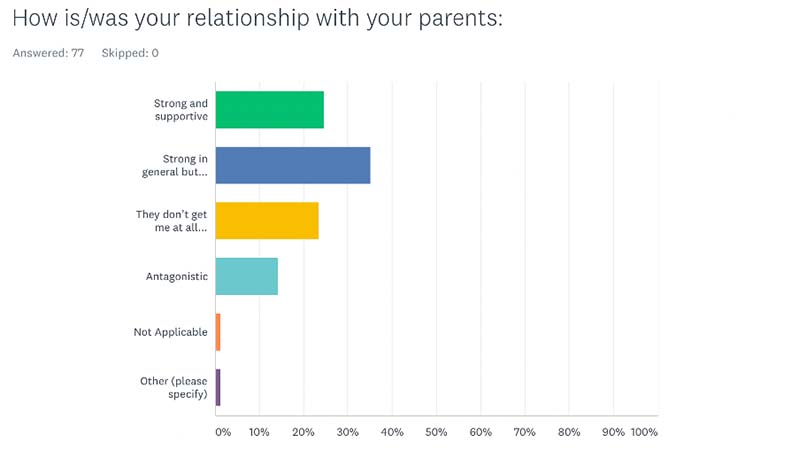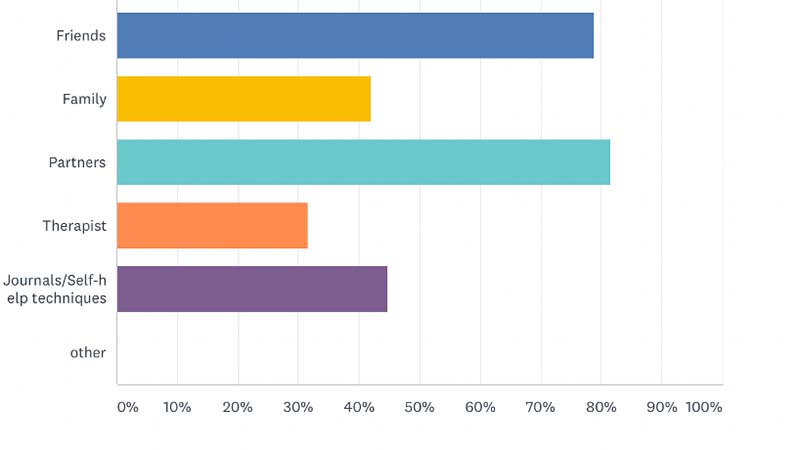Polyamory is often seen as fun and games. But, there are less-spoken aspects of the relationship-type that affect the emotional well-being of its practitioners. What are these challenges and what impact can it have on the British society?
Remember crushing on that hottie from high school? And then when you adored the smartie from science class? That celebrity in the famous music video? When you thought that your friend’s cousin was totally your cup of tea and so was your neighbour next door?
Now imagine, if you could have them all and all of them were friends and everyone took care of everyone else. Did the cup of tea just get steamier? Well, this is what polyamory sounds like.
While for some it is a relationship choice, for others it is an orientation and therefore a natural inclination to have multiple lovers as partners. For instance, Russell, who is 54-year-old and is polyamorous since 1992 says, “I didn’t know that I was polyamorous in my teens. But I’ve always had the capability of having close connections with other people. And I’ve always loved women.”
However, while you might like it and it might work for you, the British society may not be completely comfortable with it. From parents to friends and employers, there might be judgement, leading to tangible and intangible losses – from jobs to child custody and parental love and support.
Bisexual and polyamorous in orientation, 24-year-old Mariel wishes she had her parents’ support through her relationship. “I would feel happier if my family were next to me. I would love to communicate my troubles to them. I want them to support me even if they don’t accept it. It’s difficult to find people who can accept you the way you are.”
She explained that her family doesn’t know about her sexual or relationship orientation and she is hesitant in telling them about it because she thinks they are conservative. “I don’t believe they would accept it. If they do, they won’t understand it and would feel ashamed of introducing me to others.”
She is not alone in her emotional distance from her parents. In a recent survey that I conducted for this story, polyamorous peoples from the United Kingdom were called to share their challenges, hopes and aspirations around their emotional well-being. About 73% from those who participated reported having weak ties with parents, especially when it came to their relationship choice/orientation.
Mariel says, “Family is a blessing. But they have their own life, and they don’t follow my rules. I don’t follow their rules. It’s my life. I live once. I wish things were better. I wish I had the family support, so I could communicate. But I guess even in the 21st century, we are not as open-minded.”
But while Mariel hasn’t shared her lifestyle choices with her parents yet, Russell had and he didn’t get a very positive response: “My parents could not get their head around me being non-monogamous. My dad, who is still alive, calls it philandering”.
His mother however came around the idea eventually. “We were talking together when my father wasn’t there. She said, ‘I can see how you’re polyamorous, Russell’. She didn’t exactly approve. But she could understand. So that was good. She could see my approach to life fitted who I was – an extrovert, a lover of life, a lover of women. I was really, really happy that she said this.”
In the Polyamory survey I conducted, about 42% of the people said they get emotional support from their own family. The largest chunk (about 82%) said that it depended on its partners.
It is pertinent to note here that the lack of support doesn’t just come from parents. It also sometimes comes from friends. Mariel said, “I had friends who were finding it bizarre and finding how I was weird. But if friends don’t accept who you are then what are they your friends for? Because if you’re in polyamory (relationship), or if you practice a different religion, it doesn’t affect their life at all.”
She said that it’s difficult to find people who can accept who you are, especially if it’s not fitting the conservative norms of society.

About 35% polyamorous peoples said their relationship with parents is strong in general but shaky when it comes to their relationship style
But more than friends, she misses her family, “I will feel happier and I will flourish – my character and how I open up in a relationship, if my family was next to me.”
She said that if your friends don’t accept you for who you are, “It’s tough. You might feel alone. You might feel lonely. You’re gonna cry. You’re gonna feel embarrassed, especially when somebody is judging you in front of a group of people. But the whole thing is acceptance. If you accept yourself – who you are, and why you do what you do, if you found out that this is what you need, then there is nothing better.”
She said that if she starts a crucial discussion about her life, she would want her family to be there for her, help her out, even if they don’t agree with her, “Maybe they can say they don’t agree with that. But because I need some advice, here it is. (I want them to) put themselves as if they were Mariel and tell me what they would do.”
In the survey conducted, 53% said they want better mental health and relationship support for polyamorous peoples in the country. Currently, about 32% said they reach out to a therapist for such support.
Psychotherapist Sara Hagerman says, “Unfortunately, psychotherapy training modules are still sometimes a bit dated. But we’re starting to talk more in terms of spectrums of gender, relationship style, and sexuality. It’s not commonly taught in training programs at the moment. Some therapeutic modalities in psychotherapy are rooted in a monogamy culture – that monogamy is ideal.”
She said that the element of stigma in society is huge. “Sometimes the feeling of being accepted for polyamorous people comes from within the non-monogamous community rather than, maybe, friends or family.”

How do you get emotional support? Participants could choose as many options as applied to them.
She said, “Most people (polyamorous peoples) choose me because I am open about working with Polyamory. They see that I’m a safe person who’s not going to further stigmatize them.”
Explaining the impact of stigma on emotional well-being, she said, “The most insidious effect is that people don’t even recognize you. It’s feeling invisible or made to feel like you are not looked like a person in society.”
Reader in Sociology at the Manchester Metropolitan University, Dr. Christian Klesse said that stigma can also lead to an impact on family life of polyamorous people. He explained by giving an instance. He said if polyamorous parents are made to keep their lifestyle a secret and they have to tell their children to not tell anyone about their fathers and mothers, that could instil shame in children. “It ruins family lives and the well-being of relationships.”
He also said that ‘ignoring’ the presence of polyamory or the needs of polyamorous people is unfair. “The obvious consequences of ignoring the way of life of a significant portion of society by obstructing their life choices – either through censorship, or cutting people off from voicing their concerns, or by not providing a sense of security and access to material resources is injustice.”
Additionally, he said that it works towards sustaining structures of inequality and that causes harm.
“Anyone who wants democracy should take on-board the value of gender, sexual and intimate diversity.”
Senior Lecturer from Centre of Law, Gender, Race and Sexuality of the University of Westminster, Dr. Victoria Brooks said that everyday challenges relating to polyamory include decisions such as whether to come out to employers or friends or family because there are obvious risks present.
Currently, Polyamorous relationships are not included in the Equality Act 2010, which protects people from termination of employment or discrimination on the grounds of sexual orientation, sex, marriage status, age, disability, race, religion, or belief.
There are also challenges arising from the legal system. Dr. Brooks said, “Law prioritizes monogamous couples in terms of property and marriage.”
Jonathan Herring, who is a Professor of Law at Oxford University explained this further by saying that at present the United Kingdom law treats polyamorous peoples as strangers living together and that leads to polyamory marriages not having the same rights as people with married status in the country.
In the survey on Polyamory, around 9% of the people reported that they might have lost a job due to their Polyamorous relationship orientation or lifestyle choice. About 8% said that they or someone they know have lost child custody due to their Polyamorous relationship style.
Dr. Brooks said, “Your relationships are not supported. You are open to judgement. So, in being polyamorous, there is a brave choice.”
Steaming cup of polyamory with a side of bravery, anyone?
Feature Image Credit: PeopleImages
